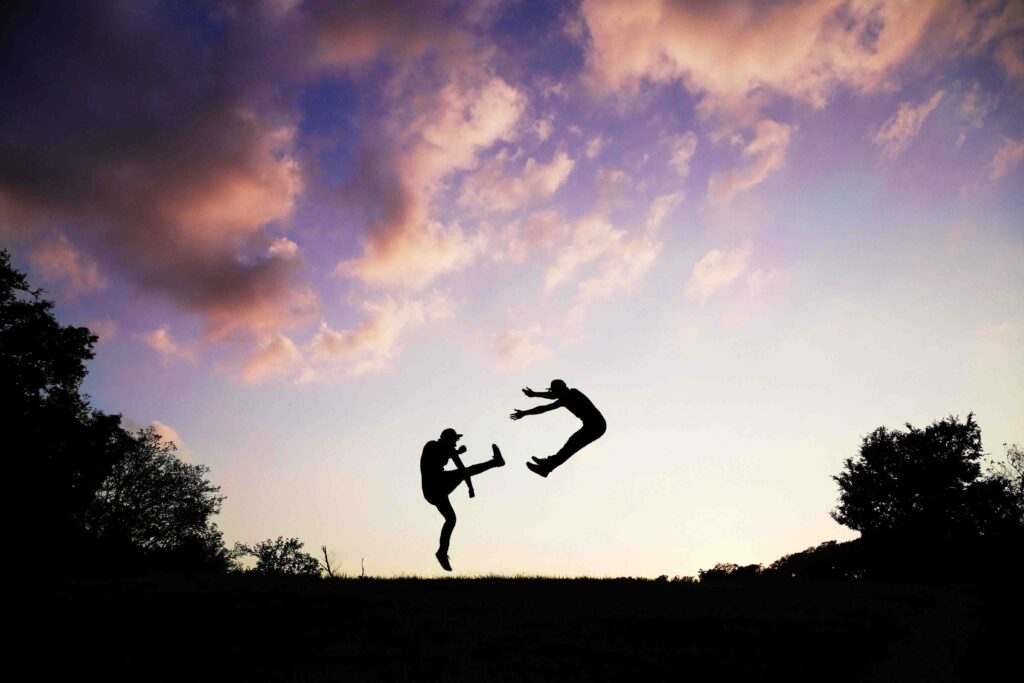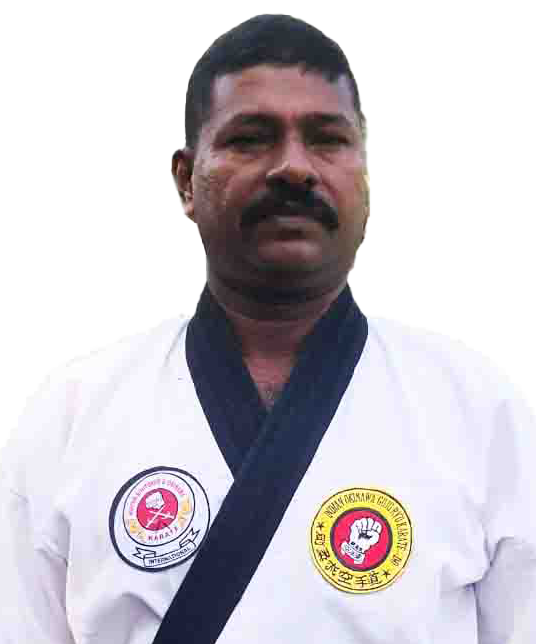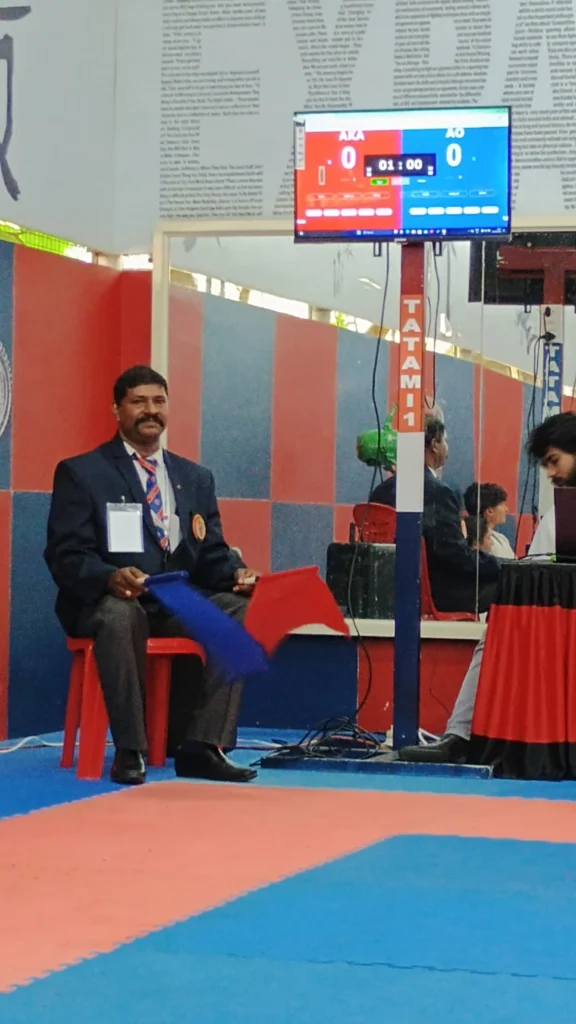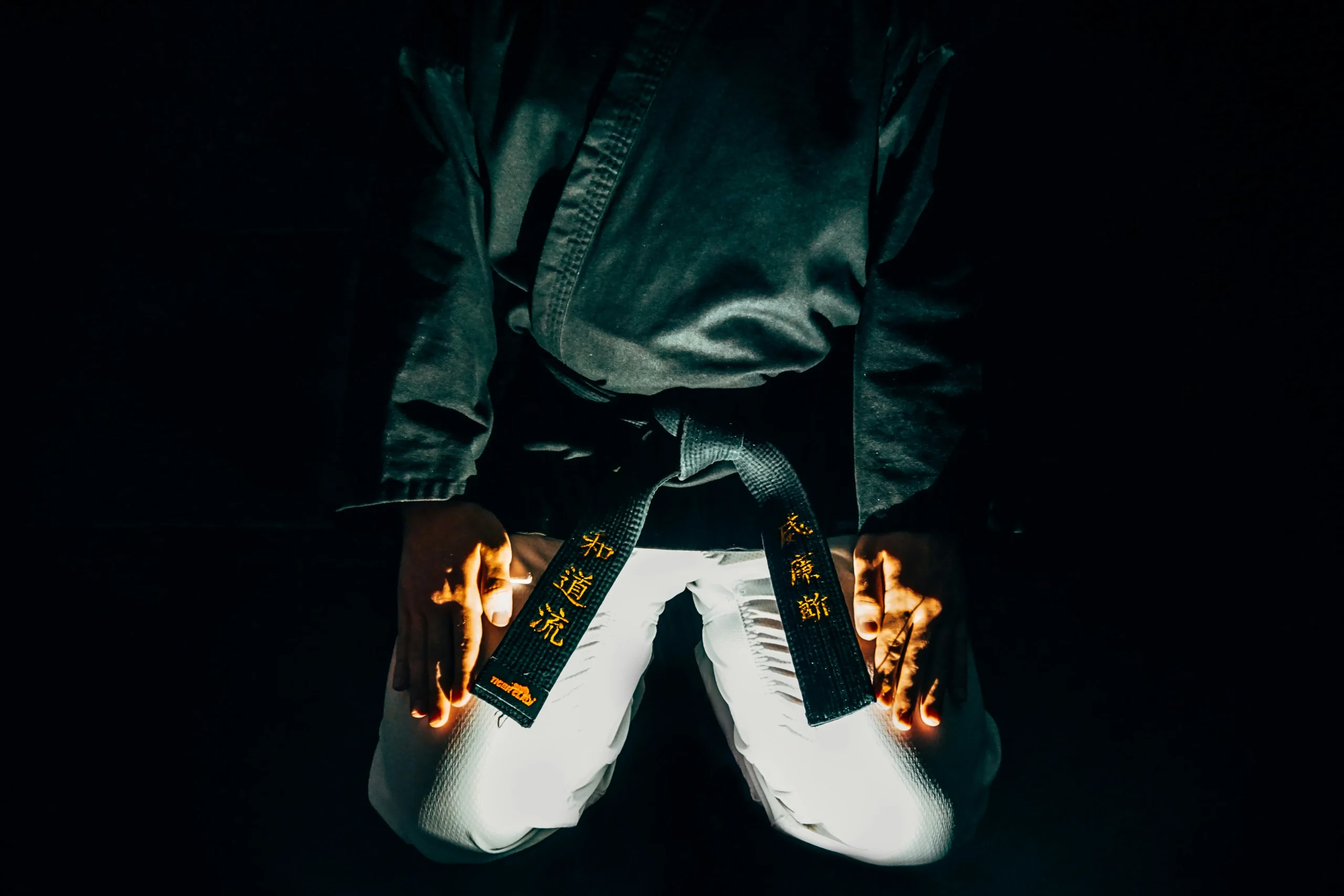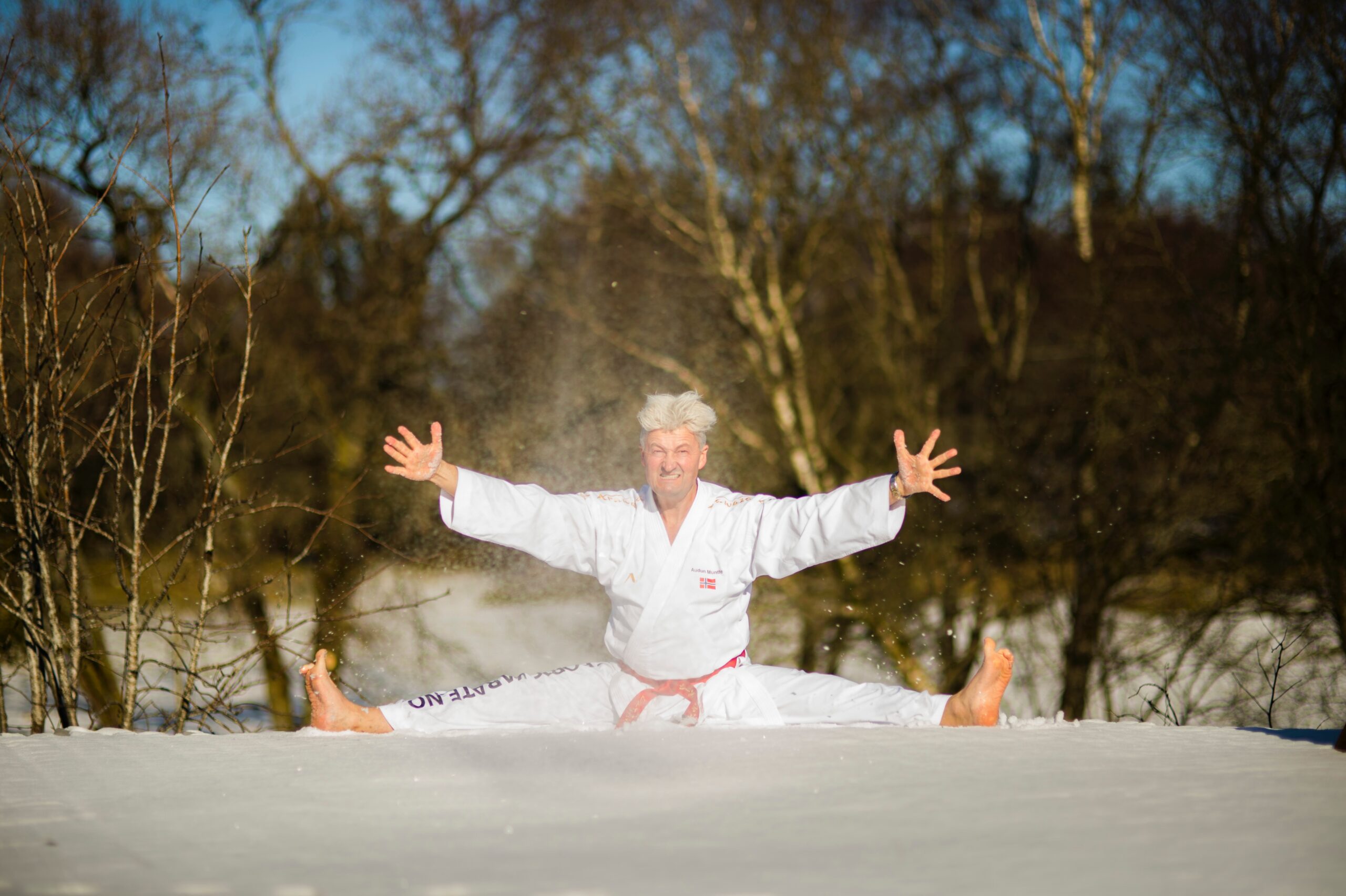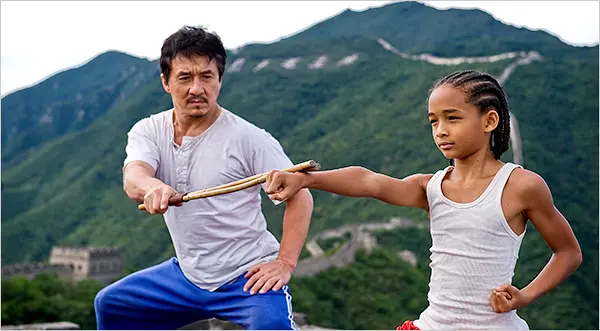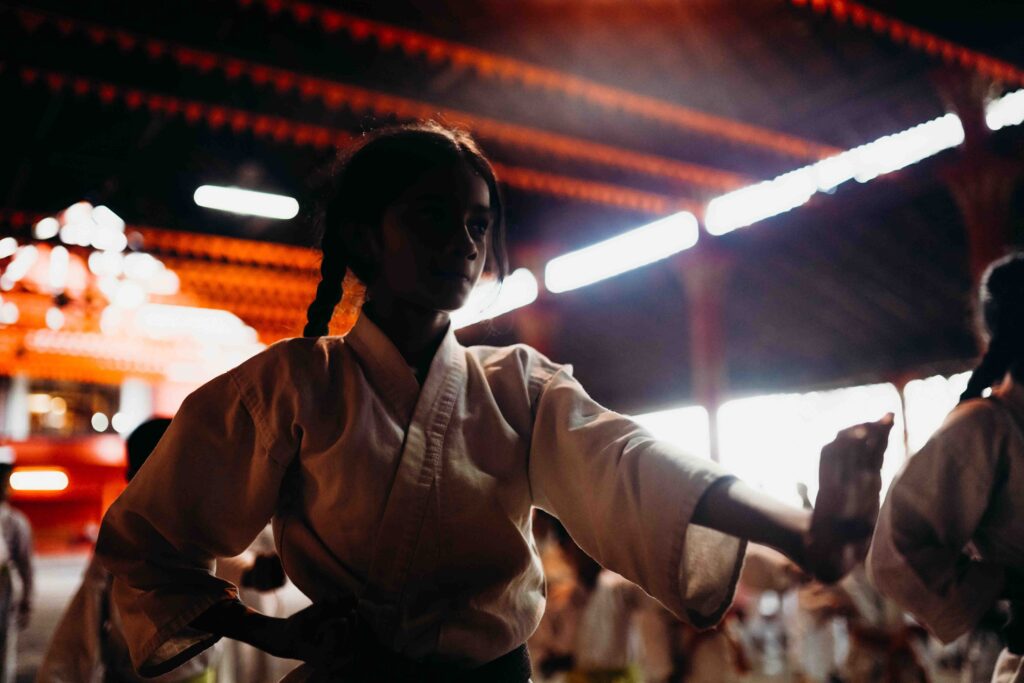Table of Contents
ToggleTable of Contents
Introduction
Practicing karate is an incredible journey that not only equips individuals with self-defense techniques but also offers a multitude of mind-blowing benefits. Karate is a martial art that originated in Okinawa, Japan, and has gained popularity worldwide for its emphasis on discipline, focus, and physical fitness. In this article, we will explore the five remarkable benefits of practicing karate and how it can positively impact your life.
Boosts Physical Fitness
Karate training is an excellent way to improve your physical fitness. The rigorous and structured nature of karate workouts helps develop strength, endurance, and flexibility. Through various exercises, including punches, kicks, and stances, practitioners engage their entire body, toning muscles and increasing overall fitness levels. Additionally, karate provides an effective cardiovascular workout, improving heart health and boosting stamina.
Enhances Self-Confidence
One of the most profound benefits of practicing karate is the enhancement of self-confidence. As individuals progress through the ranks and overcome challenges, they develop a sense of accomplishment and belief in their abilities. Karate training instills self-assurance by teaching self-defense techniques and providing a safe space to practice and refine skills. With each milestone achieved and technique mastered, practitioners gain confidence in their physical and mental capabilities.
Improves Mental Focus
Karate requires focused attention and concentration, which translates into improved mental focus in other areas of life. During training, practitioners learn to block out distractions, remain present in the moment, and react quickly to their opponent’s movements. Regular practice of karate enhances cognitive abilities, sharpening reflexes, and improving decision-making skills. This mental discipline can be applied to various aspects of life, increasing productivity and efficiency.
Develops Discipline and Self-Control
Discipline and self-control are essential qualities developed through karate training. Practitioners adhere to a strict code of conduct and follow a structured training routine. The repetitive nature of karate techniques and katas (pre-arranged forms) instills discipline, patience, and perseverance. By mastering self-control, individuals learn to manage their emotions and respond to challenging situations with composure, both on and off the training mat.
Cultivates Self-Defense Skills
Karate is renowned for its self-defense techniques, equipping practitioners with the ability to protect themselves if needed. Through rigorous training, individuals learn strikes, kicks, blocks, and grappling techniques that can be employed in real-life situations. Beyond physical techniques, karate training also teaches situational awareness, enabling individuals to identify and avoid potentially dangerous scenarios. The confidence gained from knowing self-defense skills can contribute to personal safety and peace of mind.
Promotes Stress Relief
In today’s fast-paced world, stress has become a prevalent issue for many individuals. Karate serves as an effective stress-relief tool, allowing practitioners to channel their energy and frustrations into focused physical activity. The intensity of training releases endorphins, known as “feel-good” hormones, which promote relaxation and alleviate stress. Additionally, the supportive karate community provides a sense of camaraderie and emotional support, further reducing stress levels.
Fosters Personal Growth
Karate is not just a physical activity; it is a transformative journey that fosters personal growth. The challenges faced during training build resilience and determination, pushing individuals beyond their perceived limits. As practitioners progress, they acquire humility, respect, and a growth mindset. Karate training encourages self-reflection and personal development, leading to improved self-awareness and a greater understanding of one’s capabilities.
Enhances Reflexes and Coordination
The quick and precise movements in karate training enhance reflexes and coordination. Practitioners develop the ability to react swiftly to incoming attacks and execute precise techniques with speed and accuracy. These enhanced reflexes and coordination carry over into daily life, improving motor skills and reducing the risk of accidents or falls. Whether it’s catching a falling object or responding to unexpected situations, the sharpened reflexes gained from karate can be invaluable.
Builds Social Connections
Karate provides an excellent opportunity to build social connections and form lasting friendships. Training in a group setting fosters a sense of community, where individuals support and motivate one another. Regular interactions with fellow practitioners create a bond based on shared goals and experiences. Through training sessions, tournaments, and social events, karate offers a platform to meet like-minded individuals and forge meaningful connections.
Teaches Patience and Perseverance
Patience and perseverance are integral to mastering karate. Progressing through the various belt ranks requires time, effort, and a commitment to continuous improvement. Karate training teaches individuals the value of patience by emphasizing that mastery is a journey, not an overnight achievement. Through perseverance, practitioners develop resilience, pushing through challenges and setbacks to reach their goals.
Increases Self-Awareness
Karate training promotes self-awareness, allowing individuals to understand their strengths, weaknesses, and areas for improvement. By observing their own movements, practitioners develop body awareness and learn to make adjustments to optimize their techniques. This self-awareness extends beyond the physical realm, helping individuals recognize their emotions, triggers, and thought patterns. Increased self-awareness enables practitioners to make positive changes in their lives and strive for personal growth.
Enhances Concentration Skills
In the fast-paced world we live in, maintaining focus and concentration can be challenging. Karate training requires practitioners to be fully present, concentrating on their movements, and anticipating their opponent’s actions. By regularly practicing this level of focus, individuals enhance their concentration skills, enabling them to stay engaged and attentive in other areas of life, such as work or academics.
Boosts Cardiovascular Health
Engaging in regular karate training provides a substantial cardiovascular workout, benefiting heart health. The combination of dynamic movements, kicks, and punches increases heart rate, improving cardiovascular endurance and strengthening the heart muscle. Regular cardio exercise reduces the risk of heart disease, enhances overall fitness levels, and promotes a healthy lifestyle.
Instills Respect and Humility
Respect and humility are fundamental values in karate. The hierarchical structure within the martial art fosters a culture of respect for instructors, fellow practitioners, and the art itself. Practitioners learn to bow and show gratitude, embracing humility and recognizing that there is always room for growth. These values extend beyond the training mat, promoting respectful interactions and humility in daily life.
Conclusion
In conclusion, practicing karate goes beyond self-defense and offers an array of mind-blowing benefits. From physical fitness and enhanced self-confidence to improved mental focus and discipline, karate has the power to transform individuals both physically and mentally. The practice of karate cultivates self-defense skills, promotes stress relief, fosters personal growth, and builds social connections. Additionally, it enhances reflexes, coordination, and cardiovascular health while instilling respect, humility, and self-awareness. Embarking on the journey of karate empowers individuals to master the art of self-defense while unlocking a multitude of life-changing benefits.
FAQs:
1. Is karate suitable for all age groups? Absolutely! Karate is a martial art that caters to individuals of all ages and fitness levels. Whether you’re a child, teenager, adult, or senior, karate offers tailored programs to suit your needs and abilities.
2. Can karate help in self-defense situations? Yes, karate equips practitioners with practical self-defense techniques that can be utilized in real-life situations. Learning to defend oneself is an essential aspect of karate training.
3. Do I need any prior experience to start practicing karate? No, you don’t need any prior experience. Karate dojos welcome beginners and provide proper guidance and training to help you learn and progress at your own pace.
4. How frequently should I practice karate to see results? Consistency is key. Practicing karate regularly, ideally a few times a week, will yield the best results. However, the frequency of training can vary depending on your goals and availability.
5. Can karate help with stress management? Yes, karate training can be an effective stress management tool. The physical activity, mental focus, and supportive community in karate contribute to stress relief and overall well-being.

